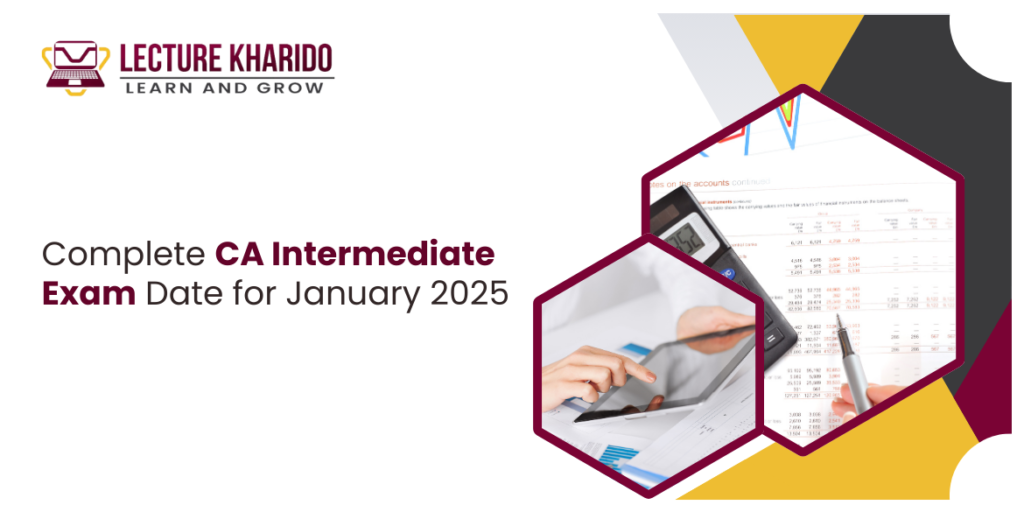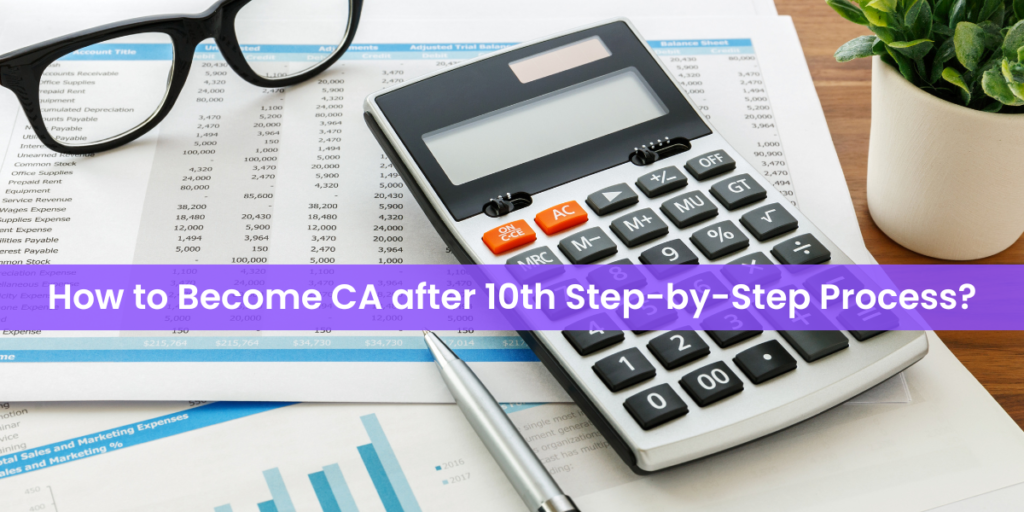Are you trying to figure out which is better: CA vs MBA? Aspiring finance professionals often face this difficulty. You have to look at a lot of levels of difficulty— like career prospects and income potential.
So, let’s go right to the point and address important issues like which is better. Who makes more money, the CA or the MBA? Which one is harder? This blog aims to clear up any confusion and help you make an informed decision. Before we start, let’s first define CA and MBA.
What is CA?
The professional accounting designation of chartered accountant, or CA, is widely acknowledged due to its strict education and proficiency in financial management, audits, taxation, and business tactics. CA is the foundation for any business and organization, as it ensures financial stability and compliance.
What is an MBA?
The focus of the postgraduate Master of Business Administration (MBA) program is on leadership, management, and strategic thinking. It is a thorough education in business that covers operations, marketing, finance, and entrepreneurship. This course is ideal for people looking to advance their careers or take on leadership positions.
Now that we know what a CA and an MBA are, let us look at the key differences between the two.
CA versus MBA: Key Differences
Choosing between a CA and an MBA requires knowledge of their fundamental differences. To help you decide, here’s a simple outline.
| Criteria | Chartered Accountant (CA) | Master of Business Administration (MBA) |
| Full Form | Chartered Accountant | Master of Business Administration |
| Duration | 4-5 years | 2 years |
| Course Structure | Foundation course, CA intermediate course, and final course. | First and second year. |
| Entry Requirements | 10+2 (with specific subjects), CPT/CA Foundation exam | Bachelor’s degree in any field, entrance exams (CAT, GMAT, etc.) |
| Degree | Professional Certification | Postgraduate Degree |
| Minimum Fees (per year) | INR 20,000- 5,00,000 (approx.) | INR 4,00,000 – ₹20,00,000 (approx.) |
| Minimum Salary | INR 6,00,000 per annum | INR 7,00,000 per annum |
| Career Options | Auditing, Taxation, Financial Consultancy | Management, Marketing, Finance, Operations |
| Pass Percentage | Around 10-15% | Around 90% |
| Difficulty Level | High | Moderate |
| Primary Focus | Accounting, Taxation, Financial Management | Business Administration, Management, Strategy |
| Professional Bodies | Institute of Chartered Accountants of India (ICAI) | Various, including AICTE, IIMs |
| Internship Requirement | Mandatory Articleship (3 years) | Mandatory Summer Internship (usually 2-3 months) |
CA vs MBA: Eligibility and Application Process
CA and MBA applicants have different eligibility criteria and application processes. Here are the specific requirements for each.
| Criteria | Chartered Accountant (CA) | Master of Business Administration (MBA) |
| Educational Qualification | 10+2 (or equivalent) with at least 55% | Bachelor’s degree with a minimum aggregate score (around 50%) |
| Age Limit | No age limit | No specific age limit |
| Examination | Pass the CA Foundation Course if applying after 10+2. Graduates can enroll directly in Intermediate | Entrance exams: CAT, GMAT, XAT, or MAT. Some accept CMAT or state exams |
| Registration | Register with ICAI for Foundation, Intermediate, and Final. Complete Articleship training | Submit your entrance exam scores, academic records, and any other relevant documents. Join in group discussions and face-to-face interviews. |
| Work Experience | Not required for enrollment. Articleship is mandatory | Not always mandatory. 1-3 years of work experience can be beneficial |
CA vs MBA: Skills Needed for Each
When deciding between a CA and an MBA, keep in mind the different skill sets required by each. Here’s an overview of them:
| CA (Chartered Accountant) | MBA (Master of Business Administration) |
| Analytical Skills | Leadership Skills |
| Attention to Detail | Strategic Thinking |
| Ethical Judgement | Communication Skills |
| Technical Proficiency | Business Acumen |
| Problem-Solving Skills | Adaptability |
| Regulatory Knowledge | Financial Management |
| Time Management | Innovation and Creativity |
| Risk Assessment | Negotiation Skills |
| Communication of Complex Data | Global Perspective |
CA vs MBA: Application Process for Each
Application Process for CA
Becoming a Chartered Accountant (CA) involves several important steps. Here’s a simplified overview of the CA application process:
1. Enrolment: Start by enrolling with the Institute of Chartered Accountants of India (ICAI) for the CA Foundation course.
2. Foundation Examination: Prepare thoroughly and pass the CA Foundation examination—this is your first major hurdle.
3. Intermediate Course: Once you pass the Foundation, register for the Intermediate course, where you’ll go deeper into accounting principles and practices.
4. Practical Training: Complete three years of practical training under a practicing CA. This practical experience is essential for applying what you’ve learned.
5. Intermediate Examination: After your training, you’ll sit for the Intermediate Examination to further validate your knowledge.
6. Final Course Enrollment: Enroll in the final course after completing the intermediate exams and part of your training.
7. IT and Soft Skills Training: Complete the required IT and soft skills training offered by ICAI, which are essential for your professional growth.
8. Final Examination: Successfully clear both groups of the CA Final examination, marking the end of your studies and training.
9. ICAI Membership: Finally, apply for ICAI membership after completing all your exams and training. This membership allows you to practice as a CA officially.
Application Process for MBA
Getting into an MBA program involves careful planning. Here’s a straightforward guide to the application process:
1. Bachelor’s Degree: Make sure you have a bachelor’s degree with the required minimum score from a recognized university.
2. Entrance Exams: Take relevant entrance exams like CAT, GMAT, XAT, or MAT. Your scores on these tests are crucial for admission.
3. Application to MBA Programs: Based on your entrance exam scores, apply to various MBA programs and wait for shortlisting.
4. Group Discussions and Interviews: Participate in group discussions and personal interviews, which are part of the selection process.
5. Final Selection: Wait for the final selection results from the institutions you applied to. If selected, you’ll receive an offer from them.
6. Admission Process: Complete the admission process, including document verification and payment of fees.
7. Start Your MBA Journey: Start your MBA journey by taking courses and completing internships and projects.
After completing the CA and MBA application forms, it’s time to start researching the subjects and curriculum for each degree. Read on to find out more!
CA vs MBA: Which is Difficult?
Both CA and MBA programs have different curricula; therefore, it is difficult to determine which is more demanding. Let’s examine their core and elective subjects.
| Curriculum | CA | MBA |
| Core Subjects | AccountingAuditingTaxationCorporate and other lawsFinancial management | Economics and Business Management Management PrinciplesMarketingFinanceOperationsHuman ResourcesStrategic Management |
| Elective Subjects | Risk ManagementFinancial Services and Capital MarketsInternational TaxationEconomic LawsGlobal Financial Reporting Standards | Digital MarketingEntrepreneurshipInternational BusinessBusiness AnalyticsProject ManagementInvestment Management |
CA vs MBA: Who Makes More?
Earning potential is a key factor when deciding between CA and MBA. Here’s a comparison of who makes more: CA or MBA.
| Course | CA | MBA |
| Entry Level | INR 6 – 9 LPA | INR 5 – 8 LPA |
| Mid Level | INR 11 – 15 LPA | INR 11 – 15 LPA |
| Top Level | INR 20+ LPA | INR 20+ LPA |
Conclusion
Choosing between an MBA and CA depends on your interests and career goals. An MBA offers broad business knowledge, while a CA focuses on accounting and finance expertise. Factors like course duration, cost, and earning potential should guide your decision. Make an informed choice with Lecture Kharido to ensure your path aligns with your aspirations.
FAQs
Q.1 Which earns more, CA or MBA?
Ans. Typically, CAs earn higher starting salaries, especially in accounting roles. MBAs may have varied earning potential based on specialization, industry, and experience.
Q.2 CA or MBA, which is better?
Ans. One’s professional aspirations determine it. CA is great for accounting and finance, whereas MBA provides broader abilities in leadership. Choose according to your interests and career ambitions.
Q.3 Is doing a CA after an MBA good?
Ans. Pursuing a CA after an MBA will help you improve your financial skills and job prospects. It blends strategic management knowledge with in-depth accounting abilities, making candidates more competitive in the job market.
Q.4 Can I do both a CA and an MBA?
Yes, you can pursue a CA and an MBA at the same time. Balancing needs both time management and attention, as it can significantly improve your qualifications and professional possibilities.













